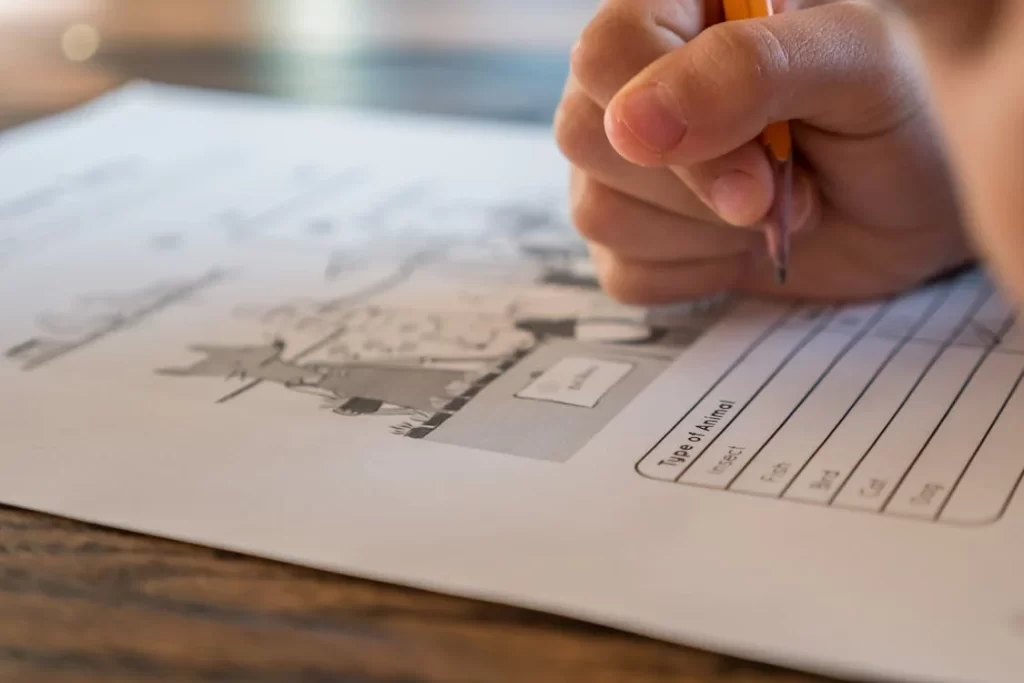Description: In this article, we’ll explore effective strategies to prepare for these exams, focusing on key areas such as planning, and study techniques.
Preparing for common entrance exams can be a daunting task for both students and parents.
These exams are often seen as a gateway to prestigious schools, requiring a well-structured approach to ensure success.
Let’s explore effective strategies that can help prepare your child for these exams.
Think Like an Examiner
Before diving into preparation, it’s essential to understand the structure and content of the common entrance exams. Typically, these exams assess a student’s proficiency in subjects like:
- English
- Mathematics
- Verbal and Non-Verbal Reasoning
Good to know: Most common entrance exams are set by either CEM (Centre for Evaluation and Monitoring) or GL (Granada Learning). It’s crucial to check the specific requirements of the school to understand which exam board they follow and tailor your preparation accordingly.

Familiarise yourself with the specific format of the exam you’re targeting. This knowledge will help in creating a focused study plan.
Start with the End in Mind
A well-thought-out study plan is the foundation of effective preparation. Here are some steps to create an efficient plan:
- Assess Strengths and Weaknesses: Identify the subjects and topics where the student excels and where they need improvement.
- Set Realistic Goals: Break down the syllabus into manageable chunks and set achievable goals for each study session.
- Allocate Time Wisely: Ensure a balanced approach by dedicating adequate time to each subject based on the student’s needs.
- Include Regular Breaks: To avoid burnout, incorporate short breaks into the study schedule.

Learn Actively, Not Passively
Adopting the right study techniques can significantly enhance learning and retention. Here are some methods to consider:
Dive into the Material
Encourage active engagement with the material through techniques like:
- Summarisation: Writing summaries of topics in their own words.
- Questioning: Creating and answering questions based on the study material.
- Discussion: Explaining concepts to a peer or parent to reinforce understanding.
Practice Like a Pro
Working on past exam papers and sample questions is crucial for familiarisation with the exam format and time management. This practice helps in:
- Identifying Patterns: Recognising commonly asked questions.
- Improving Speed: Developing the ability to answer questions quickly and accurately.
- Building Confidence: Reducing exam anxiety through repeated practice.

Revise and Reinforce
Regular revision is key to retaining information. Techniques such as flashcards, mind maps, and quizzes can make revision more interactive and effective.
Get Expert Guidance
While self-study is important, professional guidance can make a significant difference in exam preparation.
Telios Tutors has helped hundreds of students gain entry into prestigious schools through our tailored 11+ preparation programmes.

Our expertise and personalised approach can provide students with the additional support they need to excel.
Final Tips to Ace the Exam
As the exam day approaches, here are some final tips to ensure the student is well-prepared:
- Mock Exams: Simulate exam conditions with timed mock exams to build stamina and familiarity.
- Healthy Routine: Ensure adequate sleep, a balanced diet, and regular exercise.
- Stay Positive: Encourage a positive mindset and reassure the student of their capabilities.
Are You Planning for Your Child to Sit a Common Entrance Exam?
If so, have you considered whether you’ve left enough time for thorough preparation?
Do you have the strategies mentioned above in place to structure your child’s learning effectively?

If you believe your child could benefit from additional support, our professional tutors offer personalised guidance designed to boost your child’s confidence and ensure they are thoroughly prepared for their exams.




